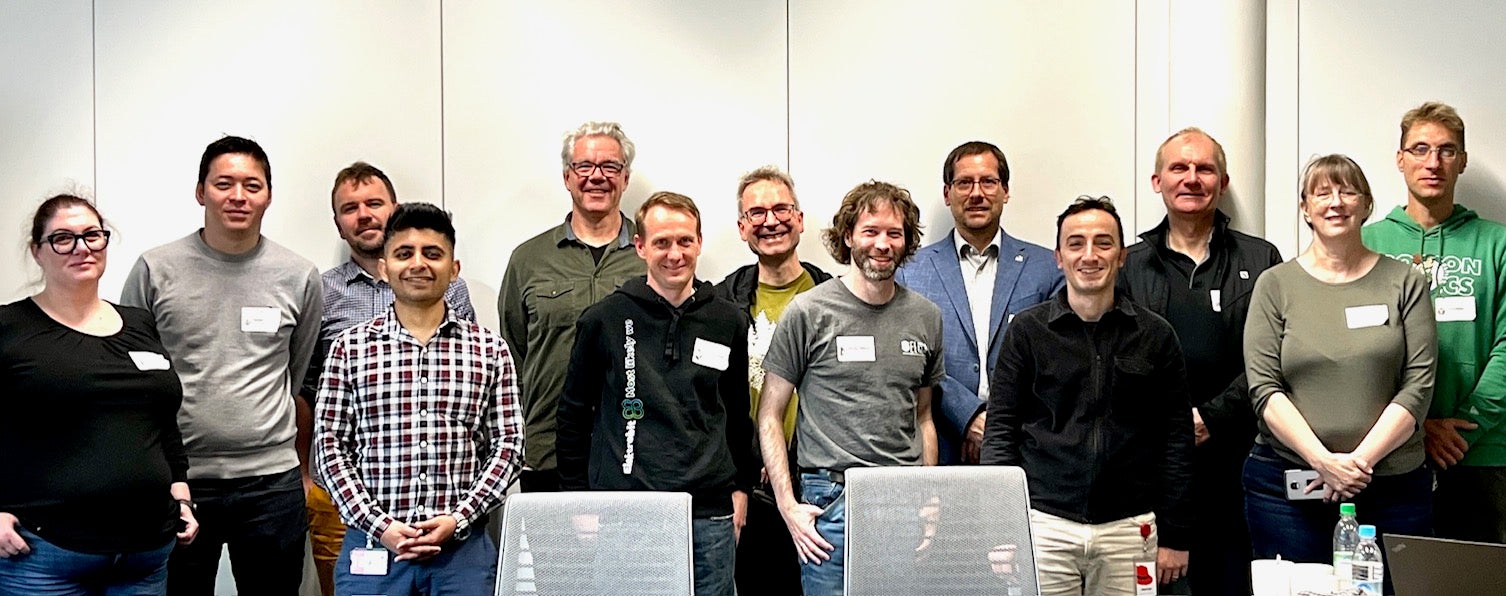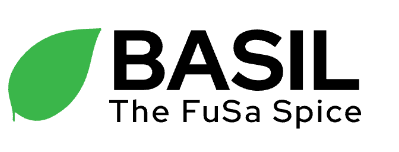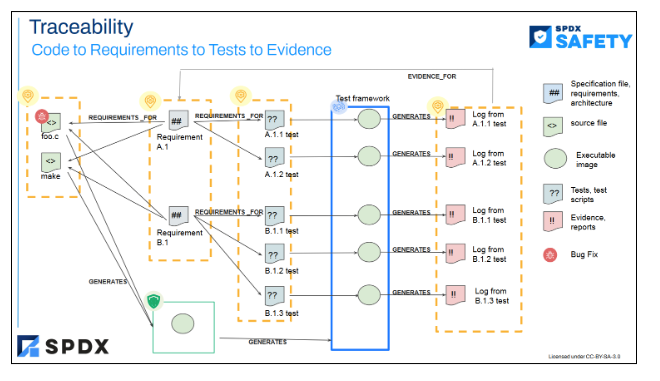
Written by Philipp Ahmann, Chair of the ELISA Project TSC, and Kate Stewart, Vice President of Dependable Embedded Systems at the Linux Foundation
On October 16-18, ELISA Project gathered at the Red Hat Munich office for an in-person workshop. The event had a great mix of attendees, including both familiar faces and first-time participants, with representatives from non-member companies such as Canonical, Volvo, MBition, Harman, and Valeo. While the workshop was primarily focused on automotive companies, there was also one participant from NASA.
Discussions centered around the core part of Linux, with a need to define what constitutes a core or minimal configuration. It was suggested that distro providers be consulted to determine their kernel configurations. The topic may continue in the architecture working group. A guide and methodology to strip down the kernel to a smaller use case and system-adjusted setting could also be useful.

A major part of the workshop was the discussion around BASIL, a new tool for tracing requirements code and tests that was proposed in the Berlin workshop earlier in the year. Introduced by Red Hat and open sourced just before the event, it has gained interest among other members, including SUSE. SUSE presented their approach on Automotive SPICE SWE processes for complex Open Source Software to get an argumentation around QM state of Linux and components in use of these systems. It is seen as promising by others and will be taken forward. It can be a path towards quality management argumentation of Linux systems.
Nvidia presented a more technical discussion on the kernel level, with a systematic approach to using the Linux kernel in safety scenarios. This was also interesting for Windriver and Elektrobit. The idea is to have a shared list of risk factors and potential interference between system elements. It is a bit of a direction like CVE to CWE if you want to compare it to security.

A session about the SPDX-SIG on Safety focused on requirement traceability with code and tests and gave a good fit to the discussions around BASIL. This was in line with the ELISA’s discussions around enhancing SBOMs to support safety argumentation and evidence.
Sessions were held on how to catch up newcomers, and understand member needs, the ELISA big picture, outreach to adjacent communities, and current challenges to comply with different aspects of the ISO26262 were held as well.
The workshop concluded with a strategy and path towards 2024. ELISA will take a stronger driver towards tools and documentation, with good documentation around PREEMPT_RT being one of these elements. It is further important to show the results so that others can better understand where ELISA is reaching and where it fits into their industrial use cases.
Overall, the workshop was a great success, with many interesting discussions and presentations. The ELISA looks forward to the next workshop and continuing to drive innovation in the Linux ecosystem.
Testimonials
“I am thrilled to have attended the ELISA workshop in Munich, where I gained valuable insights into the complexities of achieving functional safety for Linux, particularly in the automotive industry. The engaging presentations and collaborative discussions with industry experts highlighted the importance of strong collaboration in addressing this challenge.” – Bertrand Boisseau (Canonical)
“I found the ELISA workshop to be very educational and engaging. The speakers were really skilled and had a great understanding of both safety and Linux aspects. I will closely follow ELISA and hope to engage with more OEM presence” – Robert Fekete (Volvo Cars)
How to get involved
ELISA hosts workshops on a bi-annual basis. Check out the list of workshops and sessions in the ELISA Workshop Series and workshop-related blog posts and videos.
- Wondering when and where the next ELISA workshop will be held? Keep an eye on upcoming ELISA events.
- Interested in getting involved in ELISA? Introduce yourself, ask a question and follow along on Technical Forum, check out the Working Groups and start participating.
- Questions? Check out the FAQs and reach out to info@elisa.tech.